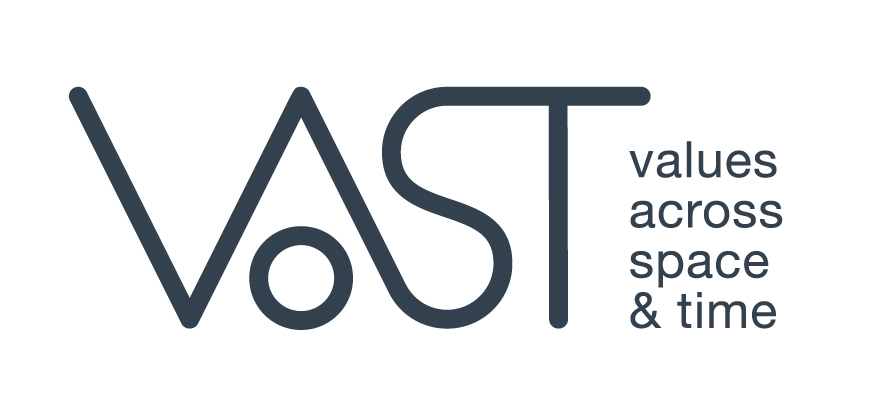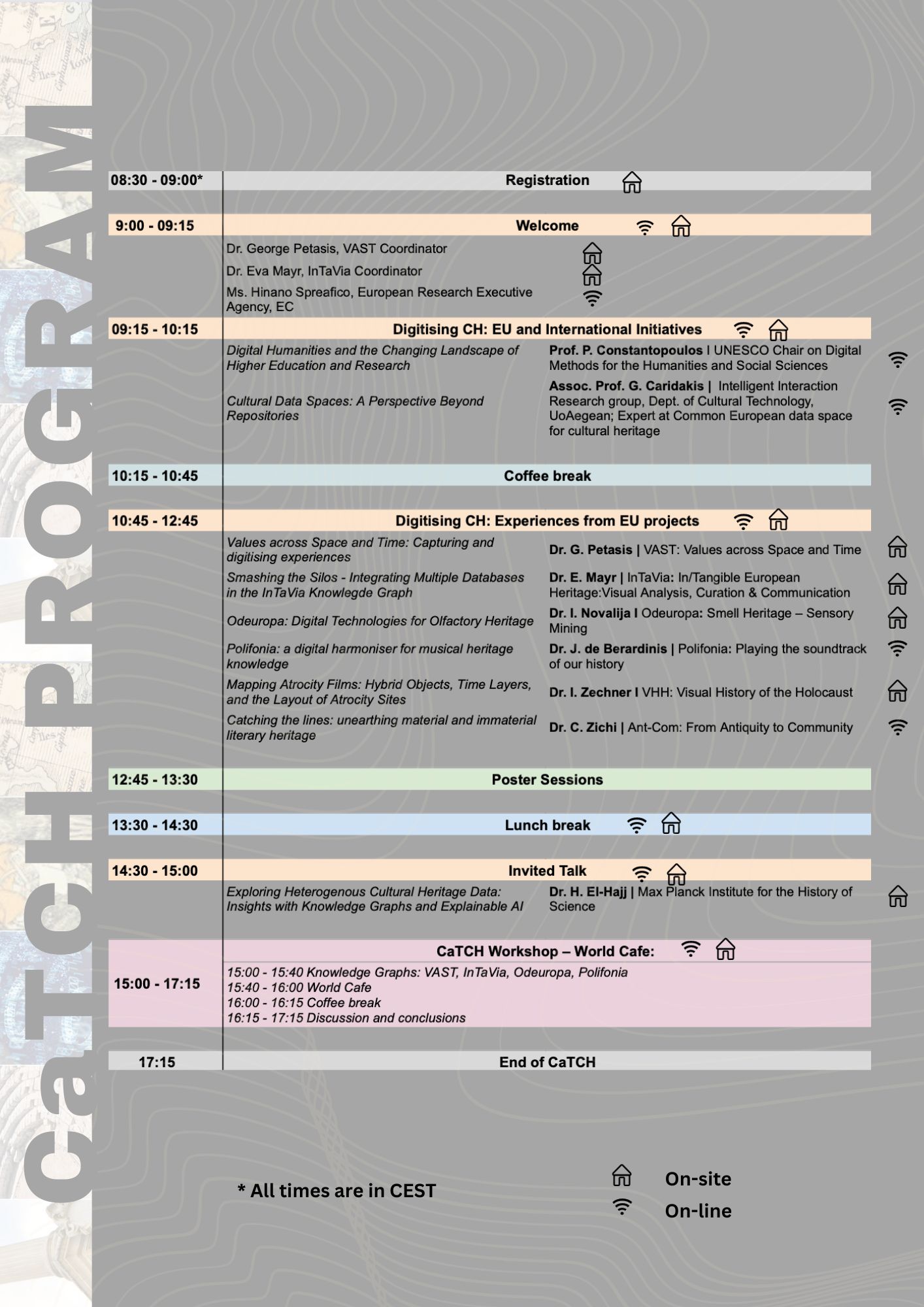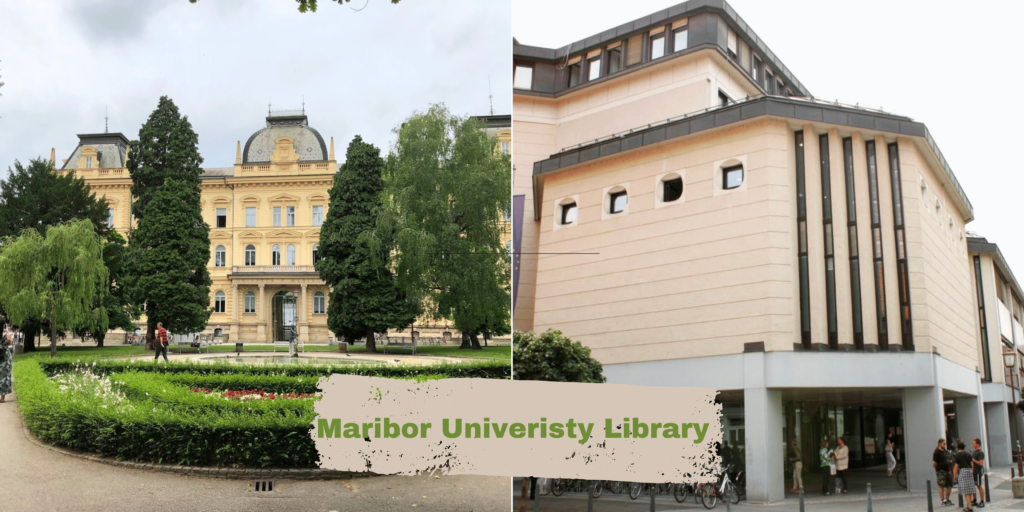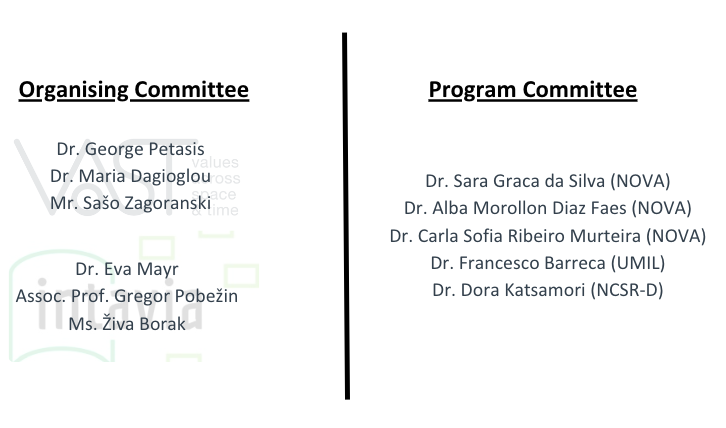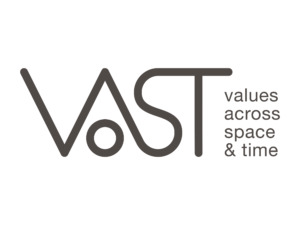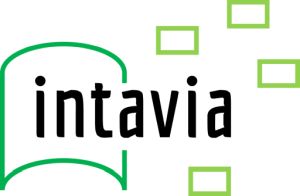Conference talks and poster presentations
Poster Abstracts @ Zenodo
Conference Proceedings: Coming soon….
CaTCH – Capturing the IntAngible of Cultural Heritage
23 October 2023
Hybrid Conference: Online & Maribor, Slovenia
Cultural Heritage (CH), whether tangible or intangible, along with contemporary creation, is the unifying thread of the past, the present and the future of our societies. Besides offering knowledge about the past, our interaction with CH comes in the form of experiences that: raise awareness about ideas and values, instigate emotions, as well as foster reflection and communication. A holistic approach towards unleashing CH’s full potential includes a variety of actions, from research to active citizen participation and cross-sectoral diffusion. Specifically:
- Study of the past. Activities in this dimension include the systematic study of historical data, as well as, the interpretation of CH artifacts in their era.
- Study of the present. The interactions of citizens with CH, ranging from museum visits to participation in performances and other contemporary creations, become stimuli to study and understand human behaviour.
- Public engagement/ (civic) education. The knowledge and interpretations gained through the study of CH, can be exploited to design the tools that encourage public engagement, and (educational) activities that cultivate tolerance and foster inclusion.
- Storytelling. Often intangible cultural knowledge is incorporated in stories – stories about tangible objects or cultural actors, but also stories about cultural values (e.g. fairy tales).
- Innovation. Digital technologies and computational methods, allow us to systematically capture and embody the accumulated knowledge and data. In turn these activities are not only fed-back to actions within the CH domain, but can also contribute to transferring this knowledge to other sectors, including AI and policy-making.
Naturally, each of the aforementioned actions faces many challenges, including curation and multilingualism, collecting data from the wild, linking different data sources, reaching-out to diverse communities, interconnection and interoperability of methods and knowledge. The goal of the CaTCH conference is to gather scholars and experts from various fields involved in the process of capturing and diffusing knowledge and experiences related to CH, in order to promote inclusive and forward-looking practices within the actions on cultural heritage.
For more information
catch.conference.2023@gmail.com
Conference Program
Details for the Poster Sessions and the CaTCH workshop -World Cafe.
Poster Sessions:
On-line presentations: All posters will be presented through the pre-recorded videos in two different break-out rooms as shown in the table bellow. All videos of each session are going to be presented one after the other without interruption for Q&A. There is Q&A time allocated at the end of the poster sessions.
Participants will not be allocated to the break-out rooms and will be free to move around.
| Session 1 – Digital Technologies and Cultural Heritage | Session – 2 – Experiences with Cultural Heritage |
|
|
On-site presentations: During the poster sessions, on-site presenters will be next to their posters and interact with on-site participants. Their pre-recorded videos will be also presented in the on-line session and any on-line questions will be conveyed to them by the organisers.
CaTCH workshop -World Cafe: In the context of Curation of digital assets and advanced digitisation, many European actions (e.g. actions under DT-TRANSFORMATIONS-12-2018-2020) and initiatives have created methodologies and methods that aim at FAIR (Findable, Accessible, Interoperable and Reusable) knowledge databases in CH. The scope of the workshop is to engage the involved stakeholders and to discuss the state-of-the art of these actions and initiatives. The ultimate goal is to identify the opportunities, as well as the barriers, towards interconnecting the various efforts into an accessible and interoperable framework.
Venue
Maribor University Library
Gospejna ulica 10, 2000 Maribor, Slovenia
Organised by projects
